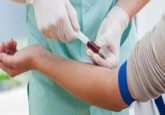Suicide gene therapy demonstrates remarkable prostate cancer survival rates
Researchers at Houston Methodist Hospital (TX, USA) have reported ground-breaking results from a long-term clinical trial investigating radiation therapy combined with suicide gene therapy in prostate cancer.
The findings, published in the Journal of Radiation Oncology, reveal 5-year overall survival rates of 97 % and 94 % in two patient arms, demonstrating a 20% improvement for survival over previous studies.
Between 1999 and 2003, 66 patients participated in the Phase II clinical trial and were split into two arms: Arm A consisted of patients with cancer cells confined to the prostate and Arm B consisted of patients with more aggressive prostate cancer.
An experimental gene therapy termed ‘suicide gene therapy’ was given to patients in Arm A twice during the study alongside radiotherapy treatment. Arm B patients received suicide gene therapy three times during the study, alongside radiation and hormonal therapy.
E Brian Butler, senior author and Chair of the Department of Radiation Oncology at Houston Methodist Hospital explained how this suicide gene therapy works: “We strategically used an adenovirus, similar to the one that causes the common cold, to carry the therapy agent – a herpes virus gene that produces the enzyme thymidine kinase, or TK – directly into the tumor cells.
“Once the herpes virus gene was delivered and it started manufacturing TK, we gave patients a commonly used anti-herpes drug, valacyclovir. The combination attacked the herpes DNA, and the TK-producing tumor cells self-destructed, which is why the procedure is called ‘suicide gene therapy.”
Once activated, valacyclovir kills tumor cells, and alerts the patient’s immune system to induce an attack on the cancer.
Since the vaccine has been created with patient’s own cancer cells, the therapy has the potential to complement and even enhance results from standard-of-care radiation and hormonal therapies.
The study findings reported remarkably high 5-year freedom from failure rates across both arms of the study. Specifically, biochemical testing revealed no indication of cancer recurrence in 62 patients.
Eighty three percent of Arm A patients and 79% of Arm B patients demonstrated negative prostate biopsies, which were performed 24 months after treatment completion. Compared with radiotherapy alone, all evaluative factors exhibited significantly higher outcomes.
Bin Teh, lead author and Vice Chair of Houston Methodist’s Department of Radiation Oncology, explained that the majority of patients in the trial also experienced little or no side effects.
Currently a Phase III trial is underway to evaluate the safety and efficacy of the in situ immunomodulatory gene therapy before it can be approved by the US FDA.
Teh shared his enthusiasm for the future: “We firmly believe this will be a viable treatment strategy.”
Sources: Teh BS, Ishiyama H, Mai WY. Thompson TC, Butler EB. Long-term outcome of a phase II trial using immunomodulatory in situ gene therapy in combination with intensity-modulated radiotherapy with or without hormonal therapy in the treatment of prostate cancer. J. Radiat. Oncol. DOI: 10.1007/s13566-015-0239-y (2015); Houston Methodist press release





